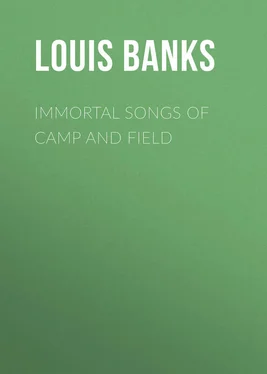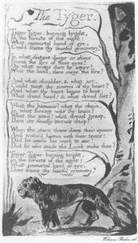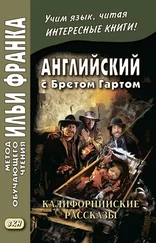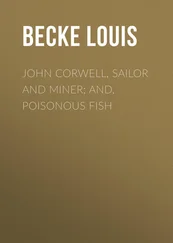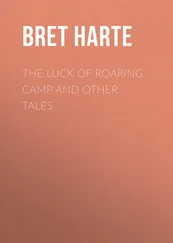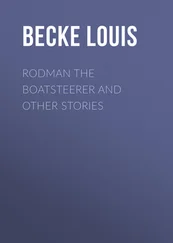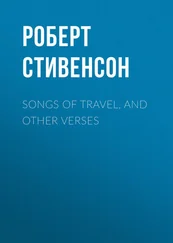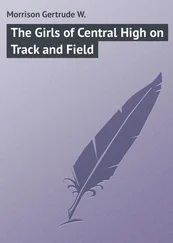Louis Banks - Immortal Songs of Camp and Field
Здесь есть возможность читать онлайн «Louis Banks - Immortal Songs of Camp and Field» — ознакомительный отрывок электронной книги совершенно бесплатно, а после прочтения отрывка купить полную версию. В некоторых случаях можно слушать аудио, скачать через торрент в формате fb2 и присутствует краткое содержание. Жанр: foreign_antique, foreign_prose, на английском языке. Описание произведения, (предисловие) а так же отзывы посетителей доступны на портале библиотеки ЛибКат.
- Название:Immortal Songs of Camp and Field
- Автор:
- Жанр:
- Год:неизвестен
- ISBN:нет данных
- Рейтинг книги:5 / 5. Голосов: 1
-
Избранное:Добавить в избранное
- Отзывы:
-
Ваша оценка:
- 100
- 1
- 2
- 3
- 4
- 5
Immortal Songs of Camp and Field: краткое содержание, описание и аннотация
Предлагаем к чтению аннотацию, описание, краткое содержание или предисловие (зависит от того, что написал сам автор книги «Immortal Songs of Camp and Field»). Если вы не нашли необходимую информацию о книге — напишите в комментариях, мы постараемся отыскать её.
Immortal Songs of Camp and Field — читать онлайн ознакомительный отрывок
Ниже представлен текст книги, разбитый по страницам. Система сохранения места последней прочитанной страницы, позволяет с удобством читать онлайн бесплатно книгу «Immortal Songs of Camp and Field», без необходимости каждый раз заново искать на чём Вы остановились. Поставьте закладку, и сможете в любой момент перейти на страницу, на которой закончили чтение.
Интервал:
Закладка:
Just at this time a young singer who was very popular in Philadelphia was to be given a benefit at one of the theaters. This young man was a school friend of Joseph Hopkinson. They had kept up their acquaintance after their school-days had passed, and one Saturday afternoon he called on Hopkinson to talk over with him his benefit which was announced for the following Monday. He said he had every prospect of suffering a loss instead of receiving a benefit from the performance; but that if he could get a patriotic song adapted to the tune of the President’s March , then the popular air, he would no doubt have a full house. The poor fellow was almost in despair about it, as the poets of the theatrical corps had been trying to accomplish it, and had come to the conclusion that no words could be composed to suit the music of that march. The young lawyer told his friend that he would try what he could do for him. He came the next afternoon, and the song, Hail Columbia , was ready for him. It was announced on Monday morning, and the theater was crowded to overflowing, and so continued, night after night, for the rest of the season. The excitement about it grew so great that the song was not only encored but had to be repeated many times each night, the audience joining in the chorus. It was also sung at night in the streets by large crowds of citizens, which often included members of Congress and other distinguished public officials. The enthusiasm spread to other cities and the song was caught up and reëchoed at all kinds of public gatherings throughout the United States.
The object of Mr. Hopkinson in writing the song, in addition to doing a kind deed for his friend and schoolmate, was to arouse an American spirit which should be independent of and above the interests, passions, and policy of both belligerents, and look and feel exclusively for our own honor and rights. For this reason no allusion was made to France or England, or to the war which was raging between them, or to our indignation as to their treatment of us. It was this prudence which gave the song its universal popularity. It found equal favor with both parties, for neither could disown the loyal sentiments it inculcated. It was so purely American, and nothing else, that the patriotic feelings of every American heart responded to it.
The President’s March , for which the poem was specially written and to which it was easily adapted, was composed in honor of President Washington, who then resided at 190 High Street, Philadelphia. The composer of the popular air was Philip Roth, a teacher of music. Not a great deal is left on record about him, but it is declared that he was a very eccentric character, familiarly known as “Old Roat.” It is also said that he took snuff immoderately. A claim has been set up for Professor Phyla, of Philadelphia, but the evidence favors Roth.
During the centennial year an autograph copy of Hail Columbia was displayed in the museum at Independence Hall, Philadelphia. This copy was written from memory, February 22, 1828, and presented to George M. Kein, Esq., of Reading, in compliance with a request made by him. This interesting manuscript has marginal notes, one of which informs us that the lines: —
“Behold the chief who now commands,
Once more to serve his country stands,
The rock on which the storm will beat;
The rock on which the storm will beat.
But, arm’d in virtue firm and true,
His hopes are fix’d on Heaven and you.
When hope was sinking in dismay,
And glooms obscured Columbia’s day,
His steady mind, from changes free,
Resolved on death or liberty,”
refer to John Adams, who was President of the United States at the time Hail Columbia was written. Mr. Hopkinson also presented General Washington with an autograph copy of his poem, and received from him a complimentary letter of thanks, which is now in possession of his descendants.
COLUMBIA, THE GEM OF THE OCEAN
O Columbia! the gem of the ocean,
The home of the brave and the free;
The shrine of each patriot’s devotion,
A world offers homage to thee.
Thy mandates make heroes assemble
When Liberty’s form stands in view,
Thy banners make tyranny tremble
When borne by the red, white, and blue,
When borne by the red, white, and blue,
When borne by the red, white, and blue,
Thy banners make tyranny tremble
When borne by the red, white, and blue.
When war winged its wide desolation,
And threaten’d the land to deform;
The ark then of Freedom’s foundation,
Columbia, rode safe through the storm:
With her garlands of vict’ry around her,
When so proudly she bore her brave crew,
With her flag proudly floating before her,
The boast of the red, white, and blue,
The boast of the red, white, and blue,
The boast of the red, white, and blue,
With her flag proudly floating before her,
The boast of the red, white, and blue.
The winecup, the winecup bring hither,
And fill you it true to the brim;
May the wreaths they have won never wither
Nor the star of their glory grow dim.
May the service united ne’er sever,
But they to their colors prove true,
The Army and Navy forever,
Three cheers for the red, white, and blue,
Three cheers for the red, white, and blue,
Three cheers for the red, white, and blue,
The Army and Navy forever,
Three cheers for the red, white, and blue.
This splendid song, as popular, perhaps, as any of America’s patriotic hymns, was written in 1843 by a young actor named Thomas à Becket. He was engaged at that time at the Chestnut Street Theater, in Philadelphia. He was waited upon by a Mr. D. T. Shaw, an acquaintance, who was also an actor, with the request that he would write him a song for his benefit night. Mr. Shaw had been trying to write one for himself, but had made a sad failure of it. He produced some patriotic lines, and asked Mr. À Becket’s opinion on them; he found them ungrammatical and so deficient in measure as to be totally unfit to be set to music. They went to the house of a mutual friend, and there À Becket wrote the two first verses in pencil, and sitting down at a piano in the room of the friend’s house, he composed the melody. On reaching home that evening he added the third verse, wrote the symphonies and arrangements, made a fair copy in ink, and gave it to Mr. Shaw, requesting him not to give or sell a copy to any one.
A few weeks afterward Mr. À Becket left for New Orleans, and a little while later was greatly astonished to see a published copy of his song entitled, “ Columbia, the Gem of the Ocean , written, composed, and sung by David T. Shaw, and arranged by T. à Becket, Esq.” On his return to Philadelphia he sought out Mr. Willig, the publisher, who told him he had purchased the song from Mr. Shaw. Mr. À Becket produced the original copy in pencil, and claimed the copyright, which Mr. Willig admitted, making some severe remarks upon Shaw’s conduct in the affair. A week later it appeared under its proper title, “ Columbia, the Gem of the Ocean , written and composed by T. à Becket, and sung by D. T. Shaw.” The song has been often printed under the title The Red, White, and Blue , and is very familiarly known as “The Army and Navy Song,” from being peculiarly adapted to reunions of the two wings of the military department of the government.
Mr. E. L. Davenport, an eminent actor, sung the song nightly in London for many weeks, where it became very popular. It was printed there under the title Britannia, the Pride of the Ocean . On this account some people have supposed the English version to be the original, and ours merely an adaptation of it. That part of its title, “The Gem of the Ocean,” belongs to the Emerald Isle, rather than to Columbia, and seems more appropriate to designate an island power like Great Britain than a continental power like the United States. However, it is beginning to look as though we might have islands of our own in abundance.
Читать дальшеИнтервал:
Закладка:
Похожие книги на «Immortal Songs of Camp and Field»
Представляем Вашему вниманию похожие книги на «Immortal Songs of Camp and Field» списком для выбора. Мы отобрали схожую по названию и смыслу литературу в надежде предоставить читателям больше вариантов отыскать новые, интересные, ещё непрочитанные произведения.
Обсуждение, отзывы о книге «Immortal Songs of Camp and Field» и просто собственные мнения читателей. Оставьте ваши комментарии, напишите, что Вы думаете о произведении, его смысле или главных героях. Укажите что конкретно понравилось, а что нет, и почему Вы так считаете.
